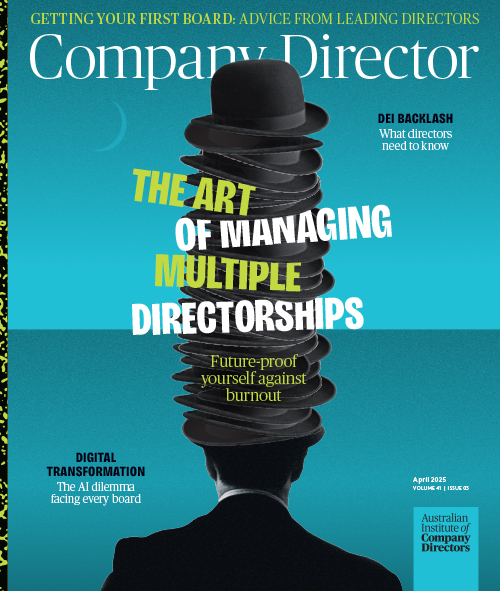National Office
1300-739-119
The Critical Governance Role of External Audits
External audits conducted by independent firms provide unbiased assessment of whether an organisation's financial statements accurately portray its financial position and performance. Mandated for listed companies in most jurisdictions, external audits lend credibility vital for investor and stakeholder trust. This article examines key features and governance implications of the external audit process.
What Are the Objectives of an External Audit?
The primary aim of an external audit is to determine if the entity's financial statements are free from material misstatement. Key objectives include:
- Assessing compliance with accounting standards and regulations applicable to the organisation and industry. Errors or non-compliant treatments misrepresent results.
- Evaluating the appropriateness of accounting policies and treatments selected by management. Inappropriate accounting distorts results.
- Testing key transactions and account balances through sampling to verify accuracy.
- Assessing and challenging significant estimates and management judgments impacting financials. These include asset valuations, liability provisions and future cash flow assumptions.
- Evaluating whether financial statement disclosures are adequate, clear and transparent. Lacking disclosures reduces insights.
- Producing an audit opinion determining if financial statements present a true and fair view or are materially misstated.
Well executed audits enhance governance by upholding accuracy and compliance in financial reporting.
What Is the Importance of External Auditor Independence?
Utilising external auditors instead of internal resources provides the independence necessary for impartial assessment. Auditors must be fully independent from the organisation's management to provide unbiased scrutiny. Key independence practices include:
- Appointing auditors who do not have financial or personal ties to the company or executives.
- Rotating lead audit partners periodically, commonly every 5 years.
- The auditor not providing non-audit services that could compromise objectivity like valuation assistance or financial report preparation.
- The auditor not participating in company decision making or activities.
- Paying fixed audit fees not linked to company performance or results.
Robust independence protections enable auditors to act skeptically instead of assuming integrity.
How to Conduct Audit Planning and Execution
The audit process involves extensive planning and procedures including:
- Identifying risks of misstatement based on understanding the entity and its environment.
- Determining materiality thresholds assessing where misstatements become significant.
- Designing an audit strategy and plan responsive to assessed risks.
- Executing integrated audit testing over internal controls and substantive transactions.
- Performing walkthroughs of key processes and systems.
- Examining samples of transactions, documents and reports.
- Making inquiries of management, finance teams and governance leaders.
- Collecting management representations affirming information validity.
- Evaluating results and determining impacts of exceptions found.
- Forming and documenting the audit opinion.
Thorough techniques produce high confidence in conclusions reached.
What is the Role of the Audit Committee in External Audit Oversight?
While auditors execute detailed work, the audit committee oversees the audit process on behalf of the board. Oversight duties include:
- Managing external auditor appointments, compensation and retention.
- Reviewing auditor credentials, qualifications and independence protections.
- Discussing the proposed audit plan and approach.
- Monitoring audit progress and resolving any issues arising.
- Evaluating audit results, significant findings and control recommendations.
- Assessing the clarity and completeness of auditor communications.
Close interaction between the audit committee and external auditor facilitates oversight of audit quality and effectiveness.
Key Audit Deliverables
Core outputs of the audit provide vital insights for governance:
Audit opinion – The formal opinion determines if financial statements present fairly or contain misstatements. Standard unqualified opinions provide assurance. Qualified, adverse or disclaimer opinions indicate concerns.
Management letter – Auditors communicate control deficiencies needing improvement in a detailed management letter. These insights strengthen internal controls.
Required communications – Auditors highlight key matters like significant estimates, risks, changes in approach and difficulties encountered. These provide perspective on audit execution.
Certification of reliance – To utilise audit evidence, auditors of subsidiaries provide assurance on accuracy of information furnished to group auditors.
Evaluating these outputs aids oversight of financial reporting quality and controls.
How Do You Drive Continuous Audit Quality Improvements?
Beyond base regulatory requirements, leading practices that optimise audit quality include:
- Allocating sufficient audit budget and resources. Deficient time and spending undermines effectiveness.
- Seeking regular audit fee proposals to compare quality and cost.
- Rotating audit firms periodically, or changing key partners, to refresh perspective.
- Holding private sessions for auditors to candidly discuss any management-related concerns.
- Surveying management on audit team competency, communication and effectiveness.
- Actively tracking implementation of auditor recommendations.
- Debriefing yearly audit performance with auditors to identify enhancements.
Viewing audits as an opportunity for continual improvement rather than regulatory necessity elevates their governance value.
Conclusion
External audits crucially uphold financial reporting quality, controls and compliance. While demanding time and resources, high caliber independent audits instill confidence in information relied upon by boards for effective governance. Audit committees in particular provide pivotal oversight enabling external audits to deliver actionable insights that strengthen organisational governance.
Acknowledgement
We acknowledge the Traditional Custodians of the Lands on which we are located and pay our respects to Elders, past and present. We recognise First Nations peoples' cultural and spiritual relationships to the Skies, Land, Waters, and Seas, and their rich contribution to society.
Already a member?
Login to view this content



